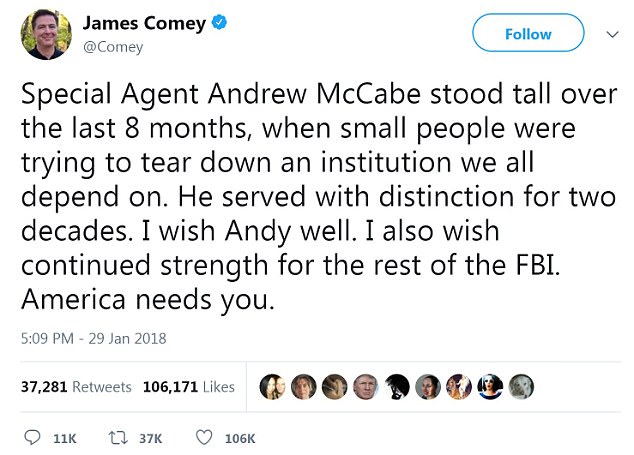It looks like you're using an Ad Blocker.
Please white-list or disable AboveTopSecret.com in your ad-blocking tool.
Thank you.
Some features of ATS will be disabled while you continue to use an ad-blocker.
share:
Has anyone had a look at the other thread about this, the one by antediluvian? I can't make myself go over ther yet- I'm afraid that reading the
excuses and deflections will get me too angry. Has anyone checked that thread?
originally posted by: KansasGirl
Has anyone had a look at the other thread about this, the one by antediluvian? I can't make myself go over ther yet- I'm afraid that reading the excuses and deflections will get me too angry. Has anyone checked that thread?
Briefly, then the wise old owl I am just.................walked away......
Been slapped too many times for stepping out of line and some threads are just best left alone.
edit on 13-4-2018 by seeker1963 because: (no
reason given)
originally posted by: KansasGirl
Has anyone had a look at the other thread about this, the one by antediluvian? I can't make myself go over ther yet- I'm afraid that reading the excuses and deflections will get me too angry. Has anyone checked that thread?
I have. This one is WAY better.
originally posted by: jadedANDcynical
Daily Mail
I think I hear the hammer cocking to strike the bell...
The "Soiled" begot the "Spoiled" 🙌
"They should'a bought a panasonic"

originally posted by: KansasGirl
Has anyone had a look at the other thread about this, the one by antediluvian? I can't make myself go over ther yet- I'm afraid that reading the excuses and deflections will get me too angry. Has anyone checked that thread?
It's the be-all/end-all 🎪
I thought they lock up people who lie to the FBI?
Is he still free?
Will he flip?
Is he still free?
Will he flip?
originally posted by: Phage
a reply to: whywhynot
Mueller has locked up one person for lying.
Do you think Mcabe has information that Mueller wants?
Is that an admission that Flynn was rounded up and charged by Mueller for something that usually isn't pursued for the purpose of pressuring him for information? I thought the party line was Mueller was simply following the facts, and that Flynn should have expected to be charged because everyone was charged for this sort of thing?
originally posted by: jadedANDcynical
"I've got your back. Stick together. Stay quiet. Don't squeel. We can outlast this if our bestie Mueller executes the insurance policy."
originally posted by: The GUT
No wonder good and honest agents hate both McCabe and Comey.
You know what - this point needs emphasising. The HEADS of these agencies, the top dogs so-to-speak, are the problem here, this is a really important point to drive home to everyone.
The frustrating part of all of this deception and subterfuge from the top dogs, is that the rank and file Constitutionally-devoted men & women of these agencies invariably cop the brunt of the public fallout by being lumped in together as the stale and inaccurate reports that 'FBI' or 'DOJ' has done this or done that.
NO - the scum running those agencies have defaulted - the agents themselves have maintained their publicly expected moral high ground and only they can step over to the other side and start doing business for the deep state.
S&F brother
So much for the idiots who claim there is/ was no FBI investigation into the Clinton foundation.
On Foxnews.com this story is front and center, as it should be... On CNN.com its "Trumps Lawyer Under Criminal Investigation" as being their front and
center piece... Just crazy to see a major news outlet like CNN not bat a eye at this.. And these so called "journalists" want us to take them
serious/credible....
edit on 13-4-2018 by jhn7537 because: (no reason given)
originally posted by: KansasGirl
Has anyone had a look at the other thread about this, the one by antediluvian? I can't make myself go over ther yet- I'm afraid that reading the excuses and deflections will get me too angry. Has anyone checked that thread?
I've read the other thread. Let me sum up the list of observations from the Left: "But Trump!"
Meuller and Comey have totally effed the FBI during their watch. When they're not busy lying and covering up for the deep state, hounding and
imprisoning innocent people, falsifying lab results, et al ad infinitum and giving uranium to Russia they're busy putting our secrets in danger.
Another report from Inspector General Michael Horowitz:
Review of the Federal Bureau of Investigation’s Response to Unresolved Results in Polygraph Examinations (PDF)
Another report from Inspector General Michael Horowitz:
Our review found that the FBI’s process for investigating and adjudicating unresolved applicant and employee polygraph results may lead to security and operational vulnerabilities.
As discussed below, we identified four primary issues: (1) investigations and adjudications of unresolved polygraph results were often lengthy; (2) the FBI did not always adhere to its policy restricting access to sensitive information for employees whose unresolved polygraph results were under investigation; (3) investigations of unresolved results did not always draw on all sources of FBI information; and (4) the FBI does not fully document or centralize its recordkeeping of polygraph case information.
First, we found that the FBI’s process for investigating and adjudicating unresolved polygraph results varied greatly across the cases we examined. We determined that the time between initiating an investigation and making a security clearance decision was often lengthy, taking an average of nearly 1 year (357 days). We analyzed the timeliness of 53 of the 78 employee cases in our sample and found that the 53 investigations took between 9 to 940 days to complete and that the corresponding adjudicative decision process took between 1 and 613 days. Because FBI employees generally continued to retain access to sensitive information, systems, and spaces while an investigation and adjudication were pending, the length of time to complete the process can expose the FBI to security risks.
Second, we found that the FBI did not always comply with its own policy governing employee access to Sensitive Compartmented Information, classified national intelligence information concerning or derived from sensitive intelligence sources, methods, or analytical processes, which is to be handled exclusively within formal access control systems established by the Director of National Intelligence. The FBI’s policy generally prohibits access to Sensitive Compartmented Information for FBI employees who have not passed a polygraph examination within a specified period.
We identified instances in which employees unable to pass multiple polygraph examinations were allowed to retain access to sensitive information, systems, and spaces for extended periods of time without required risk assessments — potentially posing a security risk to the FBI.
Review of the Federal Bureau of Investigation’s Response to Unresolved Results in Polygraph Examinations (PDF)
edit on 13-4-2018 by The GUT because: (no reason given)
a reply to: Lumenari
There is all kinds of evidence that a grand jury has been empaneled and Huber is holding back evidentiary material as he must. The 302's have yet to be addressed but that's coming I do believe. That's going to be much bigger for McCabe than his lies in this matter.
Here's some commentary that expands a bit on what is missing from these reports and why.
Digging The Details – IG Horowitz Report on Andrew McCabe
There is all kinds of evidence that a grand jury has been empaneled and Huber is holding back evidentiary material as he must. The 302's have yet to be addressed but that's coming I do believe. That's going to be much bigger for McCabe than his lies in this matter.
Here's some commentary that expands a bit on what is missing from these reports and why.
"...McCabe had every incentive to raise these issues as early as possible, and surely on November 29, when he was represented by counsel and was asked pointed questions by the OIG about his July 28 testimony denying that Special Counsel had been authorized to speak to reporters during that time period. McCabe did not do so until nearly 7 months after the July 28 interview and nearly 3 months after the November 29 interview."
That’s a long footnote that essentially outlines the timeline of events; and effectively eliminates any affirmative defense that McCabe might attempt.
However, more importantly, note the fact the interview was recorded and transcribed….because that leads to the more glaring point missing from the actual IG report. There is no accompanying addendum containing the transcript or the recording. Why not?
Answer: Because the transcript and recording of the interview(s) with McCabe are now evidence for a criminal prosecution.
If Horowitz’s federal prosecutor, John Huber, was not going to criminally charge Andrew McCabe for lying we would have seen the transcript. The absence of the transcript, and the intentional notation of the recordings by the OIG, indicate McCabe will almost certainly be charged. The evidence is overwhelming.
Digging The Details – IG Horowitz Report on Andrew McCabe
edit on 13-4-2018 by The GUT because: (no reason given)
originally posted by: KansasGirl
Has anyone had a look at the other thread about this, the one by antediluvian? I can't make myself go over ther yet- I'm afraid that reading the excuses and deflections will get me too angry. Has anyone checked that thread?
Why are you scared of different opinions? Do we need a special section for Trump/right-wing only members?
Just go read it and find out. Knowing for yourself what others are saying will help you a lot. It is why I often read the right-wing circle jerk threads. Got to know what the spin of the day is and those are the best place to find it.
new topics
-
Jaguar Rebrand Video Causes "WTF?" Moment - Seriously Weird
Automotive Discussion: 57 minutes ago -
Let's start a conspiracy
General Conspiracies: 1 hours ago -
What Joe Rogan said Vs The View
Dissecting Disinformation: 4 hours ago -
Biden's "Reckless" Decision To Escalate Russia-Ukraine War
World War Three: 5 hours ago
top topics
-
Biden's "Reckless" Decision To Escalate Russia-Ukraine War
World War Three: 5 hours ago, 16 flags -
President-Elect TRUMP Picks Former Florida A.G. PAM BONDI to be U.S. Attorney General.
2024 Elections: 17 hours ago, 15 flags -
What Joe Rogan said Vs The View
Dissecting Disinformation: 4 hours ago, 10 flags -
Inca stone masonry at Sacsayhuaman, Ollantaytambo and the Sun Temple
Ancient & Lost Civilizations: 13 hours ago, 6 flags -
Jaguar Rebrand Video Causes "WTF?" Moment - Seriously Weird
Automotive Discussion: 57 minutes ago, 5 flags -
Let's start a conspiracy
General Conspiracies: 1 hours ago, 0 flags
active topics
-
President-Elect TRUMP Picks Former Florida A.G. PAM BONDI to be U.S. Attorney General.
2024 Elections • 42 • : marg6043 -
Biden's "Reckless" Decision To Escalate Russia-Ukraine War
World War Three • 67 • : marg6043 -
What Joe Rogan said Vs The View
Dissecting Disinformation • 15 • : Athetos -
Putin will warn civilians in targeted areas
World War Three • 44 • : PorkChop96 -
U.S. Closes Kyiv Embassy Over ‘Significant Air Attack’ Intelligence
World War Three • 47 • : Oldcarpy2 -
Jaguar Rebrand Video Causes "WTF?" Moment - Seriously Weird
Automotive Discussion • 3 • : angelchemuel -
Well we know Putins ICBMs won't fail in their silos
World War Three • 150 • : DontTreadOnMe -
Let's start a conspiracy
General Conspiracies • 4 • : Coelacanth55 -
A Mysterious Orb filmed over NYC by local news
Aliens and UFOs • 16 • : Lazy88 -
-@TH3WH17ERABB17- -Q- ---TIME TO SHOW THE WORLD--- -Part- --44--
Dissecting Disinformation • 3347 • : Thoughtful3

